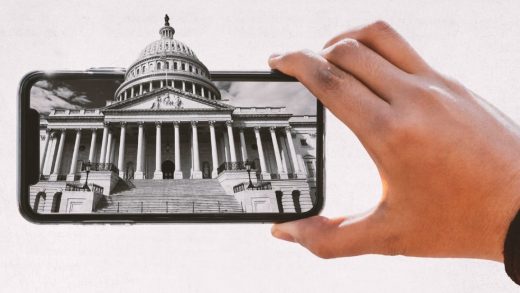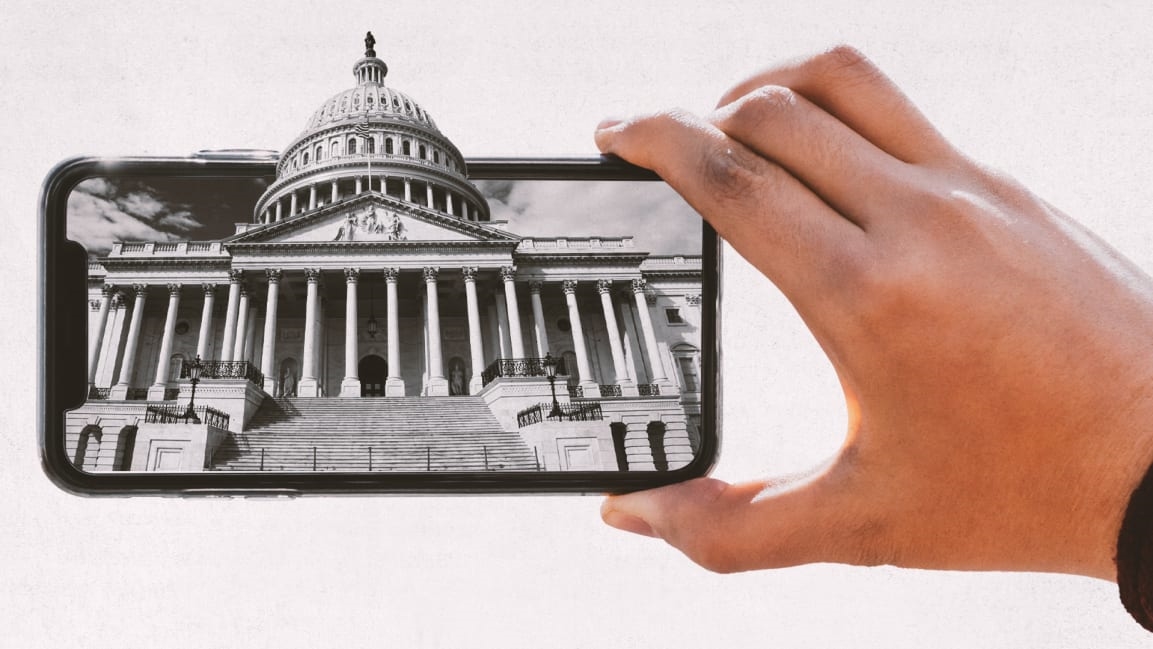The five best arguments that Apple’s App Store is a monopoly
Apple and Google testified in front of the Senate Judiciary’s Antitrust Subcommittee Wednesday, and it’s fair to say the committee members came with their A game and that Apple walked away the biggest loser.
At issue are the strict rules Apple imposes on app developers for the privilege of being listed in the App Store, which is virtually the only way developers can access the huge worldwide market of iPhone users. Google may be somewhat less in the antitrust crosshairs because it allows Android users to side-load apps from other marketplaces and websites.
But both Apple and Google require many developers to use their respective marketplaces’ own proprietary payment systems to sell their apps, and they charge the developers up to 30% to do so. Both Democrats and Republicans in the hearing seemed surprised at that high toll and wondered out loud whether it would be so high if the two main app stores faced more competition.
The subcommittee members had clearly coordinated their efforts before the hearing and presented Apple with a wide-ranging, and nonoverlapping, set of informed and relevant questions. However, the hearing was especially fiery because some big-name app developers who have a beef with the app stores—Spotify, Tile, and Tinder’s parent, Match Group—were sitting at the witness table too. Some of the best arguments against Apple’s App Store policies came from them.
Spotify’s App Store blues
Case in point: Spotify’s lawyer Horacio Gutierrez pointed out that not only is his company required to use Apple’s payment system (and pay the “Apple tax”), but the music app is also prohibited from directing users of its free iOS app to online promotions offering three months of Spotify Premium for 99¢. Gutierrez called this a “gag order.”
Spotify had the sympathy of Democrat Amy Klobuchar of Minnesota, the chair of the Senate Judiciary Committee’s antitrust subcommittee, even before the hearing. “[Telling people] they can get a better deal [on an app] on a website, when the companies . . . on the app store are banned from doing that, that’s pretty outrageous,” Klobuchar told me on the phone Tuesday night.
Spotify has a particularly interesting viewpoint because it competes directly with Apple’s own Music service, which naturally gets more visibility in the App Store. Klobuchar called this “self-preferencing.” Gutierrez said Apple had threatened retaliation against Spotify and in some cases carried it out. He claimed Apple told Spotify straight out that it would not promote the Spotify app and forced Spotify to wait for months for app-upgrade approvals.
Rides versus dates
Apple doesn’t require all app makers to pay the 15% to 30% fee to use its internal payment system, just those whose main product is delivered in the digital realm, such as streaming music. But that line is often fuzzy, as the ranking minority member of the subcommittee, Republican Mike Lee of Utah, deftly pointed out.
He asked why the dating app Tinder is required to use Apple’s payment system (and pay the 30% fee) while Uber is allowed to handle payments using its own system (and avoid the fee). Apple’s chief compliance officer, Kyle Andeer, struggled to explain how the end result of an Uber ride is so different from the end result of an in-person date arranged on Tinder. The whole exchange underlined how arbitrary Apple’s judgments are when it comes to applying app store rules, and how expensive the cost of an unfavorable ruling can be for an app maker.
Tile gets AirTagged
The day before the hearing, Apple announced its version of a personal thing-tracking device, called AirTags. Fasten an AirTag to a valued belonging and you can track the thing in the same way you locate your iPhone or AirPods using Apple’s “Find My” network.
This is bad news for Tile, which pioneered the personal tracking device category. Apple once sold Tile’s devices in its own stores, Tile’s general counsel, Kristin Daru, pointed out during the hearing, but the relationship quickly soured when it became clear Apple would offer its own tracking device. Daru said the AirTags will have an advantage over Tile with iPhone users, because AirTags will be integrated into iOS, so the iPhone will pair with AirTags with far greater ease than it will with Tiles. The iPhone will also find the location of an AirTag with more precision because of the Ultra Wideband connection that’s formed between the two. Tile isn’t allowed access to the UWB radio in the iPhone.
The analyst Ben Thompson writes Thursday in his subscription newsletter that you can’t fault Apple for this kind of hardware-software integration: “[The] fact of the matter is that AirTags and the Find My network is a particularly textbook manifestation of the ‘integration of hardware, software, and services’ that Apple loves to brag about, and if that sort of innovation leads to lock-in, it’s earned lock-in.”
But as Daru points out, Apple had access to its proprietary app store data about Tile downloads and metadata, and it could use that data to make the decision to enter the personal thing-tracker market and to design its product the way it did. That sounds a lot like a company using its unique, dominant market position to disadvantage a competitor.
Cash cow, sharp hooves
Apple justifies its 15% to 30% take by explaining that it uses that money to weed out all the poorly designed, sketchy, and insecure apps from the App Store. And developers are quick to say that the App Store is indeed a nice-looking and well-run marketplace for their products.
But Amy Klobuchar and Republican Josh Hawley both seized on the idea that Apple is overplaying the app-store security work it does. Klobuchar cited a House Antitrust Committee report saying that Apple makes between $15 billion and $18 billion a year from the App Store. The same report quotes an Apple executive saying Apple spends no more than $100 million per year to operate the store.
That’s a very high-margin business, and Apple’s investors love it. Backstory: When it became clear five years ago that worldwide smartphone sales, including iPhone sales, were beginning to level off, Apple assured Wall Street that its services business would grow quickly and fill the profit gap. It has. And revenues from the App Store are the single biggest line item in that category. This may have forced Apple to continue to press developers for revenue shares.
Hawley asked Andeer for a commitment that Apple will lower its fees to cover only the security costs, but Andeer declined.
Monopolies old and new
Match Group attorney Jared Sine dunked on Apple several times during the hearing, but his most memorable one came at the end of his opening statement:
When the veneer of their safety, security, and privacy arguments shatters under the weight of scrutiny, Apple and Google respond that they built the platforms and should be able to decide what business models they use. Members of the Subcommittee, I submit that the railroad companies built the railroads. The steel companies built the steel mills. The power companies built the power lines. The telephone companies built the telephone lines. The creators of all of these incredible inventions each made the same argument at different times, but it did not justify monopoly rents then and neither should it today. Just because Apple and Google own platforms, does not give them the right as a matter of law to mandate exclusivity and restrict competition.
Sine’s statement about Apple’s “safety, security, and privacy” arguments did seem to play out somewhat during the hearing. Apple lawyer Andeer’s responses sounded mostly like generalities about Apple’s hard work and the app store’s benefits to developers and society. But, especially in response to questions about its treatment of Tile and Spotify, Apple’s answers seemed to boil down to “because we can.”
The act of writing a law that will correct some of the anticompetitive practices of the major app stores will be difficult. Unintended outcomes are a big concern. But the hearing Wednesday seems to have set the stage for some sort of bipartisan action. This could mean something as small as slight adjustments to existing antitrust law to better arm agencies such as the Federal Trade Commission. It could also mean a new bill aimed at addressing the unique set of anticompetitive practices in the app stores.
(64)



